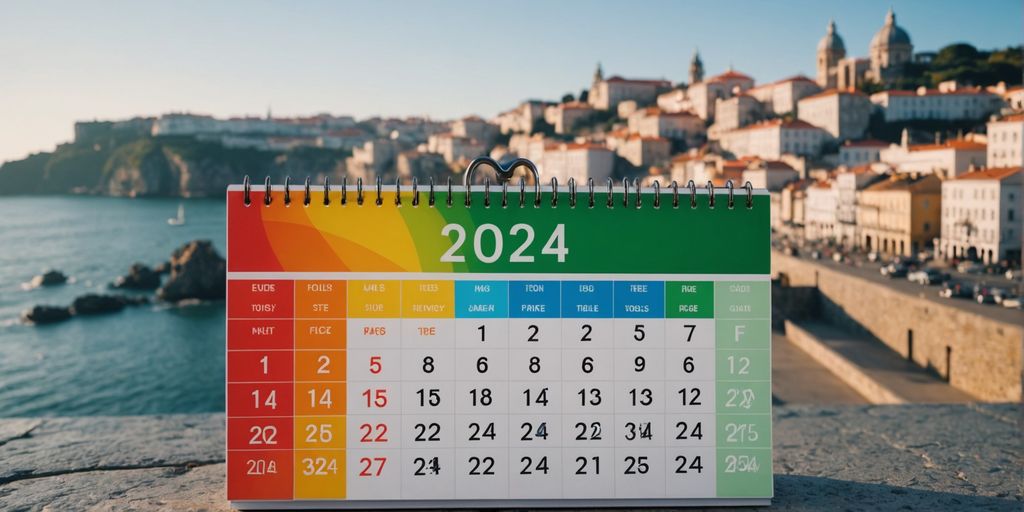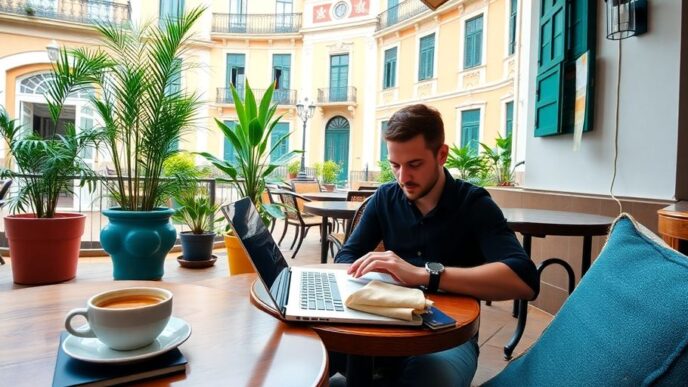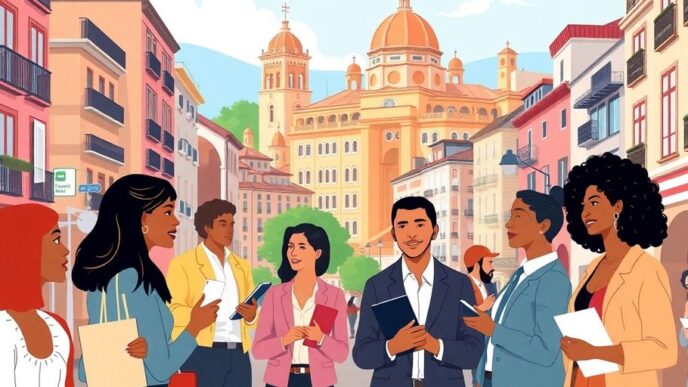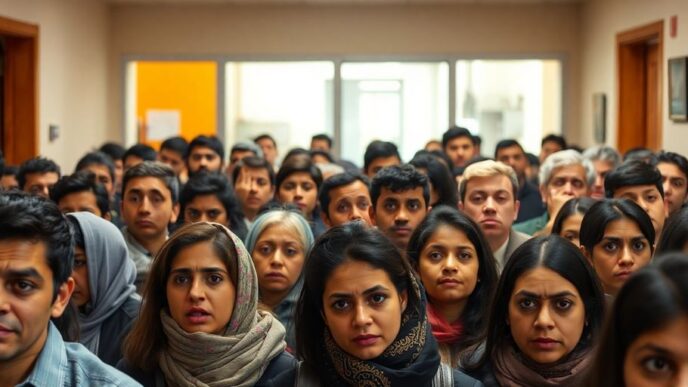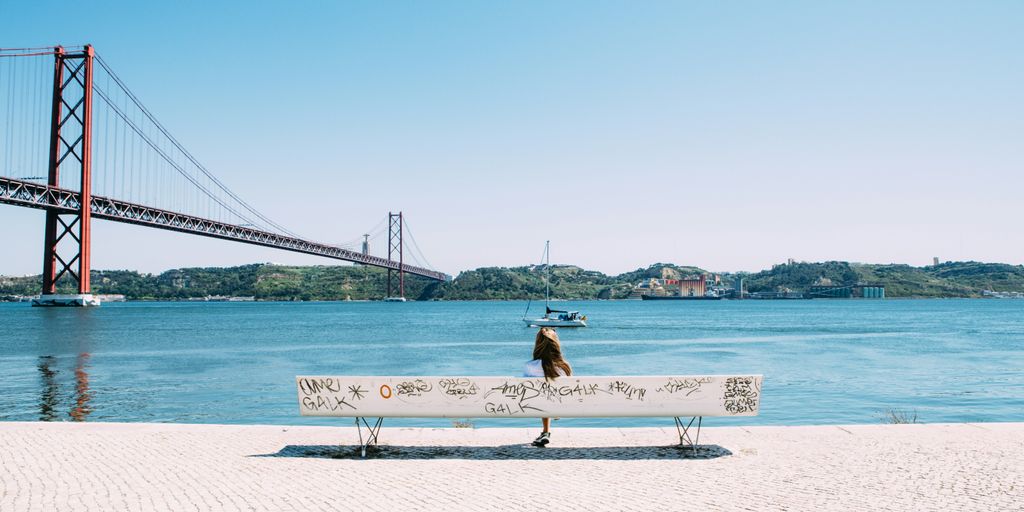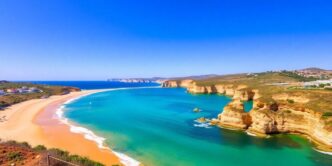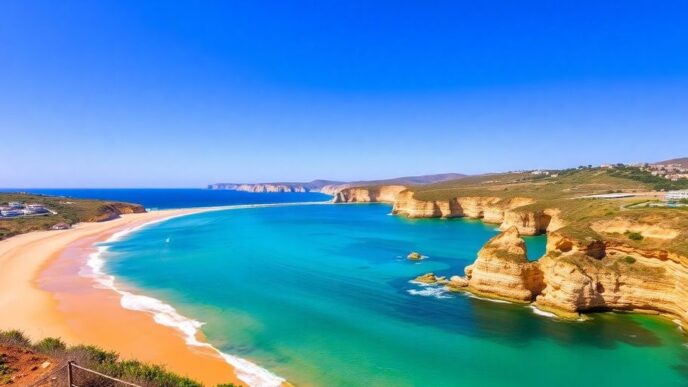New Year’s Day: Traditions and Celebrations
In Portugal, New Year’s Day is a time for family gatherings and reflection, celebrated similarly to other Western countries. The New Year is ushered in with a burst of vibrancy and joy: families unite for splendid feasts, and the night sky sparkles with dazzling fireworks. A cherished tradition is the “Consoada,” a lavish New Year’s Eve banquet brimming with traditional dishes that delight the senses. As the clock strikes midnight, the festive spirit overflows into the streets, with the Portuguese celebrating the onset of the New Year through exuberant parties. Adding to the charm, a delightful custom involves savoring twelve grapes at the stroke of midnight, with each grape representing a wish for prosperity and happiness in the forthcoming months, symbolizing a fresh start and the promise of new possibilities.
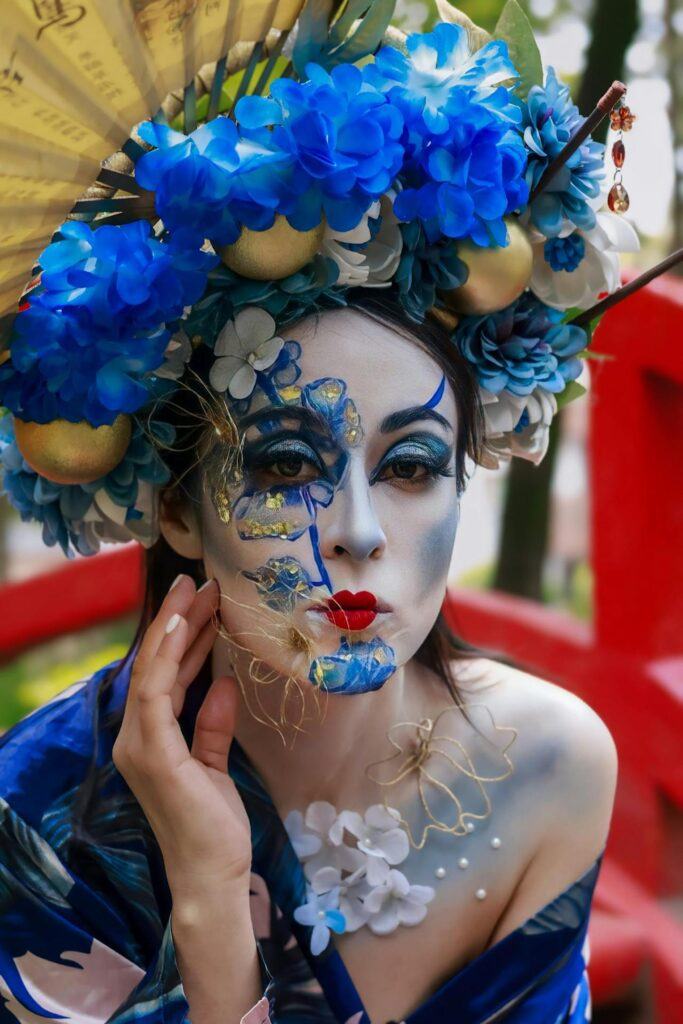
Carnival: A Vibrant Portuguese Celebration
Carnival, or ‘Carnaval,’ in Portugal is a vibrant celebration that marks the pre-Lenten season with a kaleidoscope of color and a spirit of pure joy. The entire country is transformed into an enchanting canvas of elaborate parades, glittering costumes, and pulsating music. Each region adds its distinctive flair to the festivities: Torres Vedras captivates with its witty, satirical displays, while the historic town of Loulé hosts one of the nation’s most traditional carnivals, complete with thematic floats and exuberant folk dancing. This jubilant festival not only showcases the diverse cultural tapestry of Portugal but also unites people of all ages in a shared experience of revelry and celebration, reflecting the lively essence of Portuguese life.
Good Friday: Observances and Customs
Good Friday, or Sexta-feira Santa, is a day of deep reflection in Portugal. It marks the crucifixion of Jesus Christ and is observed with profound solemnity. Many people engage in fasting and avoid meat, embracing these acts as expressions of respect and introspection. This day is not just a holiday but a time for renewal and rebirth.
On Good Friday, traditional foods play a significant role. Many families prepare simple meals, often featuring fish. Codfish dishes are especially popular. These meals are a way to honor the day’s solemn nature while bringing families together.
The historic city of Braga becomes the epicenter of Good Friday observances. It hosts the “Procissão da Burrinha” and the “Procissão do Senhor Ecce Homo,” both of which are deeply moving and visually stunning. These processions draw both locals and tourists into a reflective journey through the narrative of Christ’s suffering. Churches across the country hold solemn ceremonies, adding to the day’s reverence.
Freedom Day: Commemorating April 25th
Historical Background
Freedom Day in Portugal, celebrated on April 25th, marks the peaceful Carnation Revolution of 1974. This revolution ended the Estado Novo regime and restored democracy. The day is a source of national pride and is remembered for its bloodless nature, symbolized by the iconic carnations.
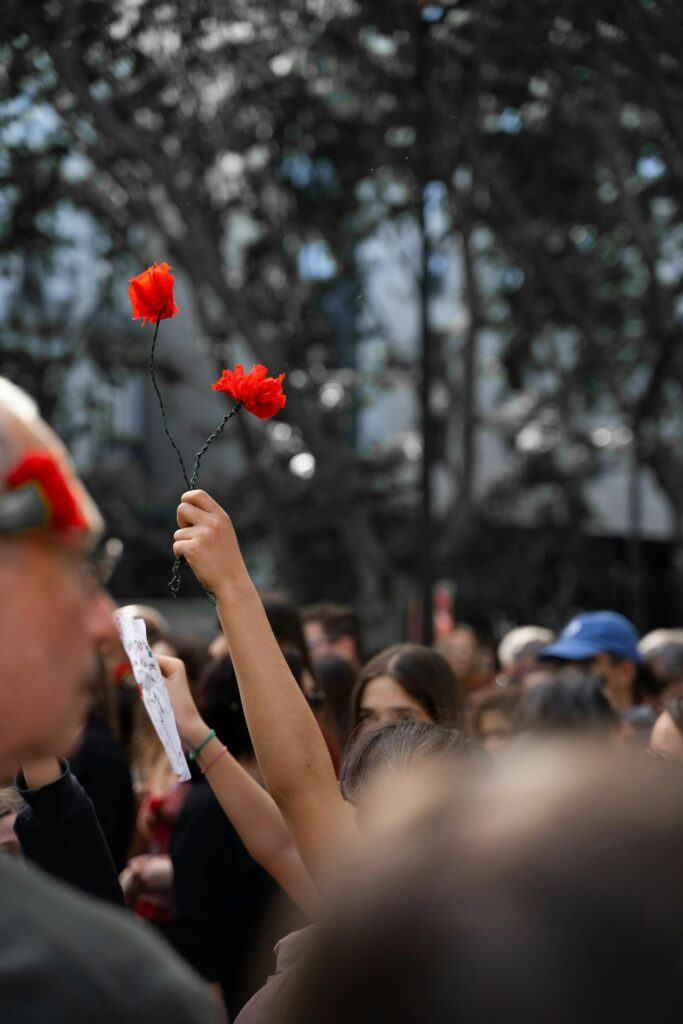
National Celebrations
The day is filled with various events that resonate with the spirit of liberty and unity. You can expect:
- Majestic military parades
- Soul-stirring concerts
- Eloquent public speeches
These events are held throughout the country, making it a day of nationwide celebration.
Impact on Modern Portugal
The revolution is a source of pride in Portugal, where the anniversary is a national holiday called “Freedom Day”. It serves as a reminder of the country’s journey to democracy and continues to inspire the values of freedom and unity among the Portuguese people.
Labor Day: Honoring Workers
Labor Day, or Dia do Trabalhador, is a big celebration in Portugal. It honors the working class and their fight for fairness and rights. This national holiday is filled with events that show how important labor rights are. The streets come alive with colorful parades, passionate labor rallies, and various cultural activities. It’s a day when work stops, and people relax and spend time with family. More than just a holiday, Labor Day is a strong reminder of workers’ contributions and sparks talks about social justice and community solidarity.
Portugal Day: Celebrating National Identity
Portugal Day, or Dia de Portugal, honors the death of Luís de Camões, a revered literary figure. His works, especially The Lusiads, are a source of national pride. This day is not just about history; it’s a celebration of the spirit and identity of the Portuguese people.
The day is marked by a variety of events. The President’s address is a key highlight, emphasizing the richness of Portuguese culture and history. Across the nation, you’ll find military ceremonies, cultural festivities, and the proud display of Portuguese flags. Even Portuguese communities abroad join in, making it a global celebration.
Portugal Day is more than a public holiday; it’s a vibrant testament to the country’s enduring cultural legacy. It underscores the unyielding determination of the Portuguese people to govern their destiny. This day is a powerful reminder of the nation’s resilience and fortitude, inspiring both past and present generations.
Assumption of Mary: Religious Observances
Religious Importance
Assunção de Nossa Senhora, also known as the Assumption of Our Lady, is a significant religious and cultural event in Portugal. Celebrated on August 15th, this day honors the belief that the Virgin Mary was taken up to heaven. It is a time of profound reverence and devout celebration, deeply embedded in the nation’s religious calendar.
Church Services
Across the country, this holy day is observed with special church services and dignified processions. These services echo Portugal’s rich religious heritage. In the historic town of Óbidos, the festivities take on a particularly enchanting aspect with a medieval festival that offers a glimpse into the past, complete with period costumes and traditional activities.
Community Celebrations
Beyond these solemn observances, Assumption Day is also a time for familial bonding and relaxation. Families seize this opportunity to come together, often embarking on excursions to the country’s scenic beaches or its tranquil countryside, making the most of the late summer weather. This blend of spiritual contemplation, familial connection, and celebration exemplifies the multifaceted nature of Assumption Day.
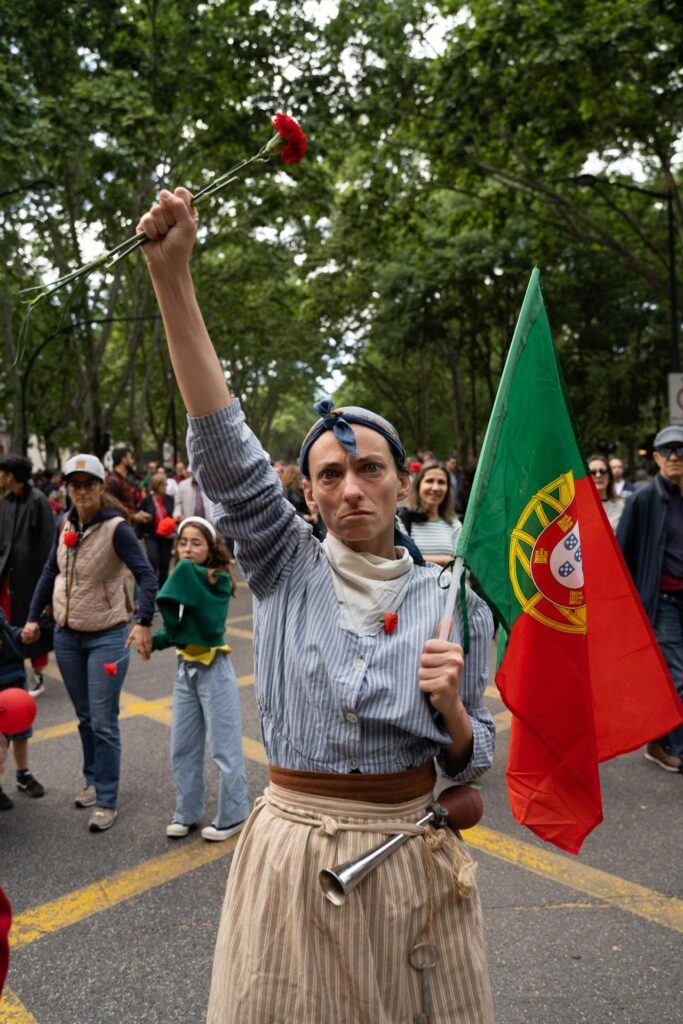
Republic Day: Remembering October 5th
Republic Day in Portugal, celebrated on October 5th, marks the establishment of the Portuguese Republic in 1910. This day is filled with national pride and historical significance. It’s a time when the country comes together to honor its journey towards democracy and self-governance. Across Portugal, this day is celebrated with a variety of vibrant and patriotic events, from grand military parades showcasing the nation’s strength and unity to cultural performances that delve into the rich tapestry of Portuguese history and arts.
Christmas Day: Festive Traditions in Portugal
Christmas in Portugal is a time of heartfelt warmth and reflection, celebrated with family gatherings, reverent religious practices, and an air of festive joy. The holiday’s culinary delights are central to its celebration, featuring traditional dishes like “Bacalhau da Consoada”, a savory codfish specialty, and “Bolo Rei”, a fruit-laden cake symbolizing the festivity’s richness. The “Missa do Galo”, the solemn midnight mass, stands as the spiritual apex of the celebration, drawing families together in communal reflection. The exchange of gifts and the collective singing of Christmas carols further enhance the holiday’s sense of warmth and communal bond. These enduring traditions encapsulate the essence of Christmas in Portugal: a celebration of familial bonds, deep faith, and joyous merriment, cherished and perpetuated through generations.
Regional Variations of Celebrations
Portugal, though small, boasts a wide range of regional celebrations, each with its own unique charm and cultural richness. These varied regional festivities not only highlight Portugal’s vast cultural tapestry but also illustrate the profound connection each community has with its heritage. The diversity of these celebrations is a testament to how deeply ingrained and cherished these traditions are in the identity of each locale, making Portugal a mosaic of vibrant, enduring cultural expressions.
Typical Foods and Drinks During Public Holidays
In Portugal, public holidays are a feast for the senses, with each celebration offering a unique culinary experience. These holidays are not just about traditions but also about enjoying delicious food and drinks that bring people together.
Traditional Dishes
During Christmas, families gather around tables filled with “Bacalhau da Consoada,” a beloved salted cod dish. Another favorite is “Bolo Rei,” a fruity cake that symbolizes the festivity’s abundance. These dishes make the holiday a sensory delight, weaving together flavors and familial warmth.
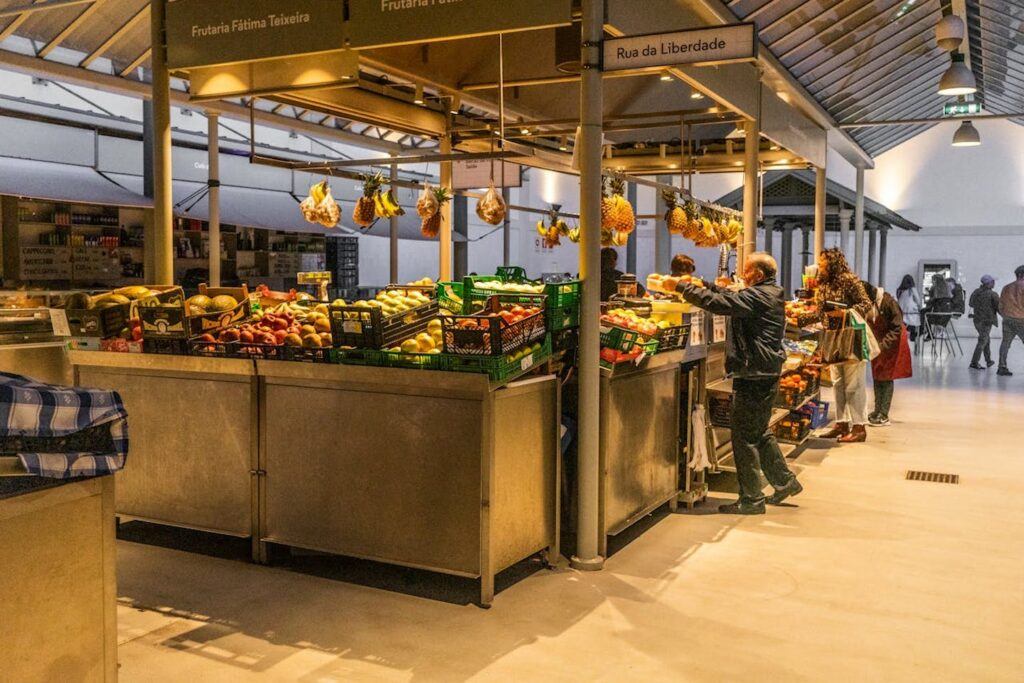
Popular Beverages
Wine is a staple in Portuguese celebrations. From the famous Port wine to the refreshing Vinho Verde, there’s always a perfect drink to accompany the meal. Don’t forget to try Ginjinha, a cherry liqueur that’s especially popular during festivals.
Regional Specialties
Each region in Portugal has its own special dishes. In the north, you might find “Francesinha,” a hearty sandwich covered in melted cheese and sauce. Central Portugal is known for “Leitão,” a succulent roast pig. Down south, “Cataplana,” a seafood stew, is a must-try. These regional specialties highlight Portugal’s vast cultural tapestry and the profound connection each community has with its heritage.
Travel Tips for Tourists During Public Holidays
Planning your trip around public holidays can be a great way to experience local culture. However, be mindful of the local customs and climate when packing. Portugal boasts very cool monasteries and churches, but you may be denied entry if not dressed appropriately.
Public transport usually runs during holidays, but schedules might change. Check ahead to avoid surprises. Larger cities will have more frequent services, while smaller towns might have limited options.
Respect local traditions and customs. Demonstrating sensitivity and appreciation for local traditions not only ensures an authentic and immersive experience but also contributes to the preservation of these unique and vibrant festivities. This thoughtful approach enriches the experience for everyone, creating a space of mutual respect and shared joy in Portugal’s rich cultural landscape.

